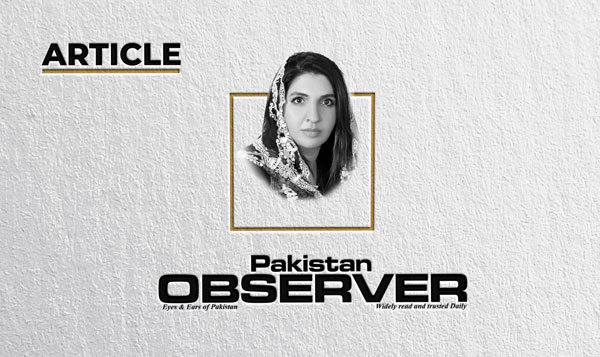Russia’s growing influence in South Asia
THE Ukraine crisis triggered a domino effect of significant international events. After tension escalated between Russia and the West, sanctions were placed on Russia by the United States and the European Union. Moscow had already begun making adjustments to its security and military preparations before this occurrence as a result of the changing geostrategic and geo-economic environment. On December 25, 2014, new military guidelines were formed and on November 30, 2016, a novel foreign policy concept was unveiled. This rapid shift reflected a possible shift in Russia’s understanding of the strategic environment and the efficacy of the means by which it pursues its strategic goals.
The strategic security statement acknowledged that “Russia is a great power again” and that it has been “increasingly involved” in settling critical international problems and preserving strategic stability. Furthermore, the state has “become a centre of influence in today’s world.” The strategic plan highlighted how the worldwide scene is now chaotic, uncertain and resource constrained. The globe is becoming increasingly multipolar and this phenomenon is aptly defined by regional and global instability. Russia’s continued leadership in the post-Soviet space is a priority for its foreign policy. The Common Wealth of Independent States (CIS), the Eurasian Economic Union (EEU), the Shanghai Cooperation Organization (SCO) and the Collective Security Treaty Organization (CSTO) are all shaping the growing multi-centric world.
Russia’s policy toward South Asia is addressed in both the National Security Strategy of the Russian Federation to 2020 and the Maritime Doctrine of the Russian Federation to 2020. The security situation in Afghanistan and South Asia has a negative effect on the international environment and Russia is committed to “converting the Indian Ocean into a zone of peace, stability and good neighbourly ties,” according to two memoranda.
Russia has recognized Pakistan’s geostrategic importance and has been trying to establish full cooperation with the country. Also, military exercises under the banner “Friendship 2017” were conducted jointly by Moscow and Islamabad. At a conference on Disarmament, Non-Proliferation and Strategic Stability in December 2017, Pavel Didkovsky, the first Secretary of the Russian embassy in Islamabad, stated that Moscow “neither opposed nor sought to block Pakistan’s application to join the Nuclear Suppliers Group (NSG).” He stressed the Non-Proliferation Treaty’s openness to participation by countries that have not yet signed it (NPT). Russian Ambassador Alexey Dedov elaborated on his country’s stance afterwards, telling Pakistani media, “Russia has no reservations regarding Pakistan’s membership in the NSG.”
Russia is thinking at options including constructing a gas pipeline from Iran to India through Gwadar. There is a plan to ship natural gas to both Pakistan and India. The United States has repeatedly stalled this project because of its opposition. Russia has encouraged India to find a way to join the CPEC and benefit from China’s Belt and Road Initiative (BRI). By taking this strategy, Russia has backed Pakistan’s efforts to implement CPEC, a move that has been opposed by India. Russia sees India as its “preferred strategic partner” and has extensive contacts with it, so this won’t be an easy route.
Here, Pakistan would have a difficult time navigating the complexities of Russia’s strategies of balancing with India if it remained apprehensive of Moscow’s close connections with New Delhi. However, the recent visit of the Foreign Minister of Pakistan to Russia and growing economic ties between both states are expressing their comfort and trust in each other. Using multilateral institutions as a platform, Russia has deepened its economic and geopolitical relations to the South Asian countries. In this context, the EEU and the SCO have assumed a special role. Russia supports the concept of a North-South corridor linking Russia, Iran and India through the Caspian and Arabian Seas. Together with China, Russia has been actively supporting the Silk Road Initiative.
During the larger process of Pak-Russian strategic convergence, Afghanistan emerged as a regional theatre where the interests of Pakistan and Iran converged for the first time. The world took notice in July 2018 of an once-in-a-lifetime meeting with intelligence chiefs from Pakistan, Iran, China and Russia. Not only did its unique nature surprise the international community, but it also exposed the growing consensus among regional parties on Afghanistan’s plight.
However, coordination should be enhanced to combat terrorism, drug trafficking, economic growth, Eurasian integration aspirations and to work together in international organizations like the Shanghai Cooperation Organization. Russia has played a significant role in SCO to balance the growing conflict between Pakistan and India. As the global economy and geopolitical pendulum swings towards Asia, Russia has grasped the need of clearly outlining its strategy towards Asia in general and South Asia in particular. If the Russian ideal of a “Greater Eurasia” is to ever be achieved, it must be bolstered from the East, not the West. In addition, constructing a balanced Russian strategy toward South Asia is no longer a question of choice as due to the growing tensions between Russia and the European Union, Russian ambitions for economic expansion into Europe are decreasing.










